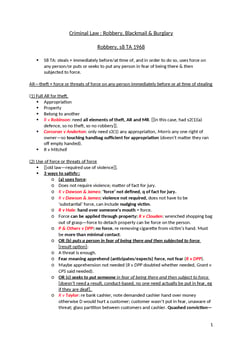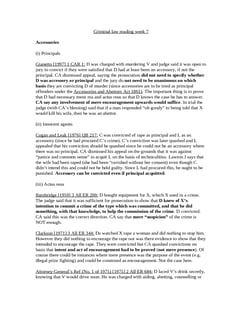Judgement for the case R v Hughes
Table Of Contents
KEY POINTS
The use of the expression “causes…death…by driving” imports the concept of causation.
The inclusion of the phrase "causes...death...by driving" in section 3ZB implies that there must be some action or failure to act in controlling the vehicle, which entails some degree of responsibility, regardless of whether it amounts to careless or inconsiderate driving.
This action or omission must have a significant impact, more than just a minimal contribution, leading to the person's death.
FACTS
Appellant Mr. Hughes was driving his family home in a campervan along the A69 towards Newcastle. The road conditions were normal, and the appellant's driving was faultless. However, Mr. Dickinson, who was driving in the opposite direction, was driving erratically and veering all over the road.
Despite the appellant's careful driving, Mr. Dickinson's car crossed into the wrong lane and collided with the appellant's campervan while rounding a bend. The appellant and his family survived the accident, but Mr. Dickinson, who was found to have heroin in his system and was overtired from long night shifts at a power station, suffered fatal injuries and eventually died.
At the time of the collision, the appellant did not possess a driving licence and was uninsured, which are both offences under the Road Traffic Act 1988. Although the prosecution acknowledged that the appellant was not at fault for the accident and could not have prevented it, they charged him under section 3ZB of the 1988 Act for causing Mr. Dickinson's death while driving uninsured and without a licence. Neither offence carries a prison sentence.
COMMENTARY
The case of R v Hughes demonstrates the importance of analysing both factual and legal causation in criminal cases.
It highlights that while factual causation establishes a direct link between the defendant's conduct and the harm, legal causation delves deeper into the defendant's level of responsibility.
By requiring a more than minimal contribution to the harm, legal causation ensures that criminal liability is reserved for those whose actions have made a significant impact on the outcome.
For Further Study on R v Hughes

A collection of the best GDL notes the director of Oxbridge Notes (an O...
Need instant answers? Our AI exam tutor is here to help.
Ask questions 🙋 Get answers 📔 It's simple 👁️👄👁️
Our AI is educated by the highest scoring students across all subjects and schools. Join hundreds of your peers today.
Get StartedSimilar Cases
Related Product Samples
These product samples contain the same concepts we cover in this case.
| GDL Criminal Law | Causation Notes (7 pages) |
| Criminal Law | Homicide Notes (20 pages) |

 Since 2010, Oxbridge Notes has been a trusted education marketplace, supplying high-quality materials from top achievers at universities like Oxford, Cambridge, LSE, Harvard, and Yale.
Since 2010, Oxbridge Notes has been a trusted education marketplace, supplying high-quality materials from top achievers at universities like Oxford, Cambridge, LSE, Harvard, and Yale.